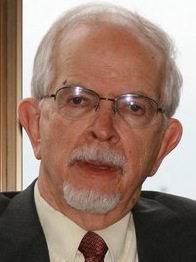Thus did Barack Obama inherit, as part of the burden of his new office, a US prison in a foreign country, on soil under the control of the US. As an added bonus for a post 9/11 nation and its leaders, it was a US prison outside the jurisdiction of US courts.
When Obama took office in 2009, the opportunity lay before him to close Guantanamo prison. But as Josh Rogin writes in The Daily Beast, Obama and his team stumbled coming out of the gate.
In the first weeks of his first term, the Obama team "dropped the ball on closing the controversial military prison by failing to come up with a plan in time, refusing to help House Democrats who were fighting for its closure, and then abandoning the plan altogether and blaming Republicans."
Rogin places much of the blame on Obama's newly appointed chief of staff, Rahm Emanuel, a fellow Chicagoan, who is now the mayor of Chicago.
Historians will need to examine more closely this chapter in the Obama first term, but for the moment, we have Josh Rogin's interviews with lawmakers who indicate they tried to help close Guantanamo, but were undermined by the failure of the White House to provide political support for the fight.
"According to lawmakers, officials, and experts who were closely involved in that 2009 fight, the White House, led on the issue by then-chief of staff Rahm Emanuel, was late in coming up with a plan to close the prison and then made a political decision not to help House Democrats who were fighting tooth and nail with Republicans over the policy. According to Rogin:
"The fight over restrictions to fund the closure of the prison was led on the Democratic side by then-House Appropriations Committee Chairman David Obey (D-WI), and Reps. Jack Murtha (D-PA) and Jim Moran (D-VA). In an interview Thursday with The Daily Beast, Moran said that when fight was on, the White House was nowhere to be found.
"'They left all of us twisting in the wind,' he said. 'Rightly or wrongly, they gave us a very clear impression, 'You're on your own on this issue.'
"White House and Justice Department officials refused congressional requests for briefings, talking points, and other statistics that would have helped Democrats dispute Republican claims that transferring prisoners from the island prison facility increased the threat to national security. Moran argued with Justice officials at the time, but the policy was being made at the White House and was handed down by Emanuel specifically, he said.
"'The administration could have weighed in more consistently and more aggressively. They pretty much gave up on getting the Congress to act responsibly on the issue,' Moran said. 'It was politically expedient not to use up chips on this issue.... Eventually it wasn't worth fighting anymore because we didn't have the White House beside us.'"
Rogin writes that while White House Counsel Greg Craig was initially given the assignment to work on closing Guantanamo, by the fall of 2009, it became apparent that the closure was not gaining traction. Again, Rogin blames Emanuel:
"Craig was repeatedly overruled by Emanuel when it came to implementing the president's policy. Emanuel saw Guantanamo as a lower priority than other pressing matters such as Iraq, Afghanistan, the economic crisis, and the health-care bill."
Emanuel was the politician closest to Obama in the White House. It is quite likely Emanuel saw Guantanamo as a political liability, a battle not worth fighting at that moment. Democrats have carried a reputation of not being tough enough on foreign enemies, and perhaps Emanuel was afraid any action that enhanced the "weakness" image, was not good for the president's reelection in 2012.
Whatever the case, the chance to close "Gitmo" from the "get-go" (from the beginning) was lost in 2009, postponed to a later day. Obama's May 23, 2013, speech indicates he is once again ready to put the weight of the White House behind closing Guantanamo.
Now in the safety of a second term, Obama is in a position to right the wrong of Guantanamo.
Congressman Jim Moran told Rogin, "Congress is not going to move unless the White House is engaged and the president uses his own personal power to force lawmakers to implement a policy they may not like."
(Note: You can view every article as one long page if you sign up as an Advocate Member, or higher).





